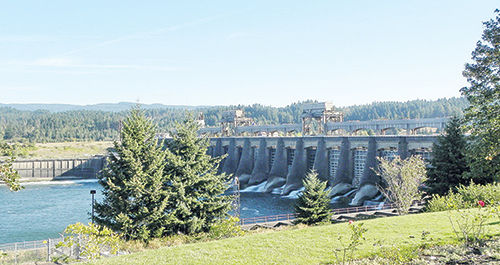Adulthood means paying for the electricity in your home and the gas in your vehicle, but few people actually understand the economics behind it all.
New class: ‘Energy Economics’

Adulthood means paying for the electricity in your home and the gas in your vehicle, but few people actually understand the economics behind it all.
Mike Katz, a professor in the Department of Economics at Portland State, is teaching a new course to educate students on just that.
The course, titled “Energy Economics,” covers all of the different resources that are consumed in energy production: coal, oil, natural gas, nuclear power, hydroelectricity, wind and sun.
Katz said the class looks at infrastructure throughout the U.S. and the world, but concentrates specifically on the Pacific Northwest.
Within the discussion of resources, the course also touches on conservation, which in some circumstances is a substitute for energy consumption.
“What [the course] doesn’t do is romanticize the subject,” Katz said. “It’s strictly hardheaded economics.”
A big piece of what the course covers is how to get the price of energy products correct.
“All these energy sources should be priced correctly, and we try to see where there are circumstances when it is not. That is to say, we look for where there are externalities,” Katz said.
For example, when a coal-fired thermal power plant that produces electricity is fired up, it also produces smoke, particulate matter, sulfur oxides, nitrogen oxides and carbon monoxides—and carbon dioxide, which concerns many because it is a greenhouse gas.
“Unless those products are mitigated, or society is somehow or another compensated for those indignities, then the consumer is not being compelled to pay the true price,” Katz said.
Katz has been teaching economics at PSU part-time since 1961, taking a few years off to work detail for a presidential commission in Washington, D.C. and travel the world a year at a time with his wife.
Since 1992, Katz has taught every year without a break. While teaching part-time, he also spent most of his professional life working for the Bonneville Power Administration.
After retiring from Bonneville, Katz was appointed chairman of the Oregon Public Utility Commission by the governor of Oregon. The PUC regulates all of the private utilities in Oregon, both electricity and natural gas.
Katz teaches “Energy Economics” as both an upper-division undergraduate class, Economics 410, and a graduate level class, Economics 510. In order to enroll in the class, students must take “Principles of Economics” first.






